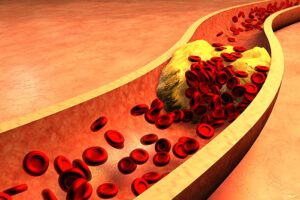Ever felt like skipping your nightly toothbrushing routine? You’re not alone! But those two minutes you spend brushing and flossing daily play a big part in keeping your smile healthy and saving you from tooth decay or gum disease.
Poor oral hygiene is a global issue. According to the World Health Organisation found that 3.5 billion people worldwide suffer from oral disease. In Singapore, one in two children experience tooth decay before they start kindergarten, and three-quarters of adults between 21 and 64 suffer from gum disease.
The numbers may sound worrying, but here’s the good news: with the right daily habits and the help of trusted oral care products from Unity Pharmacy, you can protect your teeth, improve your oral health, and keep your smile bright and confident.
Here are 5 easy steps to care for your teeth!
1. Brush and Floss Daily
When food is left on your teeth, especially sugary or starchy foods like sweets, bread, or pasta, bacteria in dental plaque turn it into acid. This acid weakens your tooth enamel and creates cavities.
If plaque builds up further, it can cause gingivitis. This is when your gums bleed and swell. When left untreated, gingivitis can progress to periodontitis, a severe gum disease that can lead to tooth loss.
Brushing your teeth twice a day and flossing once will help remove plague and food particles between teeth to prevent all of these problems!
2. Keep Your Toothbrush Clean
Rinse your toothbrush after every use, store it upright, and let it air dry. Avoid covering it or placing it in a closed container as this can encourage bacteria growth.
Importantly, change your toothbrush or electric brush head every three to four months, or sooner if the bristles wear out.
3. Visit Your Dentist Regularly
Schedule dental check-ups at least once a year. Dentists can detect cavities or gum problems early and provide preventive care before they get worse.
4. Eat a Healthy Diet
Limit sugary snacks and starchy foods. If you do eat them, enjoy them with meals instead of in between to reduce acid attacks on your teeth. You may also want to rinse or brush after eating these snacks.
You should also rinse or brush your teeth after having coffee, tea or red wine as these can stain your teeth. And of course, avoid smoking and limit alcohol—these can cause oral disease.
5. Use Fluoride Toothpaste
Fluoride strengthens enamel and prevents cavities. Always choose fluoride-containing toothpaste for your daily brushing routine.
Caring for your teeth isn’t just about health. A clean, bright smile boosts your self-esteem and helps avoid embarrassing issues like bad breath. Start today by building good brushing habits and choosing the right oral care products!
Check out FairPrice Online or your nearest Unity for a wide range of oral hygiene products, from toothbrushes and fluoride toothpaste to mouth rinses and whitening products. Unsure what you need? Our friendly staff can help you choose what’s right for you and your family.




